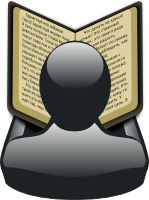Associations to the word «Read»
Noun
- Paragraph
- Bible
- Inscription
- Handwriting
- Headline
- Scripture
- Lettering
- Telegram
- Psalm
- Torah
- Epitaph
- Epistle
- Letter
- Scroll
- Paper
- Cipher
- Quixote
- Parchment
- Reader
- Book
- Script
- Newspaper
- Envelope
- Sermon
- Proclamation
- Tennyson
- Keats
- Plutarch
- Verse
- Stanza
- Poem
- Dickens
- Nietzsche
- Message
- Sonnet
- Pamphlet
- Excerpt
- Isaiah
- Oration
- Memo
- Sabbath
- Wordsworth
- Goethe
- Quran
- Novel
- Folder
- Balzac
- Catechism
- Manuscript
- Testament
- Comprehension
- Diary
- Voltaire
- Chaucer
- Countenance
- Quotation
- Prayer
- Reading
- Transcript
- Text
- Carlyle
- Rune
- Sentence
- Passage
- Allegory
- Poetry
- Upside
- Dispatch
- Shakespeare
- Parable
- Gospel
- Curate
- Recitation
- Despatch
- Coleridge
- File
- Virgil
- Lesson
- Notebook
- Editorial
- Romance
Pictures for the word «Read»
Wiktionary
READ, verb. (obsolete) To think, believe; to consider (that).
READ, verb. (transitive or intransitive) To look at and interpret letters or other information that is written.
READ, verb. (transitive or intransitive) To speak aloud words or other information that is written. Often construed with a to phrase or an indirect object.
READ, verb. (transitive) To interpret or infer a meaning, significance, thought, intention, etc.
READ, verb. To consist of certain text.
READ, verb. (intransitive) Of text, etc., to be interpreted or read in a particular way.
READ, verb. (transitive) To substitute (a corrected piece of text in place of an erroneous one); used to introduce an emendation of a text.
READ, verb. (informal) (usually ironic) Used after a euphemism to introduce the intended, more blunt meaning of a term.
READ, verb. (transitive) (telecommunications) To be able to hear what another person is saying over a radio connection.
READ, verb. (transitive) (British) To make a special study of, as by perusing textbooks.
READ, verb. (computing) (transitive) To fetch data from (a storage medium, etc.).
READ, verb. (obsolete) To advise; to counsel. See rede.
READ, verb. (obsolete) To tell; to declare; to recite.
READ, verb. (transitive) (transgenderism) To recognise (someone) as being transgender.
READ, verb. Simple past tense and past participle of read
READ, noun. A reading or an act of reading, especially an actor's part of a play.
READ, proper noun. A surname, a less common spelling variant of Reid.
READ, proper noun. A male given name transferred from the surname.
READ 'EM AND WEEP, interjection. (informal) Used to express confidence when showing a winning poker hand.
READ 'EM AND WEEP, interjection. (informal) By extension, used when outperforming or one-upping rivals.
READ ALONG, verb. To read together with another person, or with another presentation (TV etc)
READ BETWEEN THE LINES, verb. (idiomatic) to infer a meaning that is not stated explicitly
READ DATING, noun. An organized event in which prospective partners meet each other in a library through a series of one-to-one meetings
READ DATINGS, noun. Plural of read dating
READ HEAD, noun. That part of several electromechanical devices that converts digital or analog information stored on a magnetic or optical medium into electrical signals
READ IN, verb. (idiomatic) To allow access to classified information.
READ IT AND WEEP, interjection. (a term used in card games) to imply ones advantage
READ LIKE A BOOK, verb. (transitive) (idiomatic) To be able to discern someone's thoughts from his or her body language or other behavior.
READ LIPS, verb. (intransitive) (idiomatic) To lipread.
READ ME, noun. Alternative spelling of readme
READ OFF, verb. (transitive) To dictate from a list
READ OFF, verb. (transitive) To read from a scale or measure.
READ ONESELF IN, verb. To read about the Thirty-nine Articles and the Declaration of Assent; required of a clergyman of the Church of England when he first officiates in a new benefice.
READ ONLY MEMORY, noun. Alternative spelling of read-only memory
READ OUT, verb. (transitive) (idiomatic) To read something and say the words to inform other people.
READ OUT, verb. (transitive) (idiomatic) (US) (of a device) To read some data and inform the person using the device.
READ OUT, verb. (transitive) (legal) To interpret a part of a law so that it is not struck down but is rendered of no effect or applicability.
READ SOMEONE THE RIOT ACT, verb. (idiomatic) To scold or berate somebody; to reprimand.
READ SOMEONE'S LIPS, verb. To discern what someone is saying by watching the shape of the mouth rather than by hearing the sounds of the words.
READ SOMEONE'S LIPS, verb. (idiomatic) To pay close attention (often imperative).
READ SOMEONE'S MIND, verb. (idiomatic) To guess or deduce what someone is thinking.
READ UP, verb. (ambitransitive) To learn (about something) by reading.
Dictionary definition
READ, noun. Something that is read; "the article was a very good read".
READ, verb. Interpret something that is written or printed; "read the advertisement"; "Have you read Salman Rushdie?".
READ, verb. Have or contain a certain wording or form; "The passage reads as follows"; "What does the law say?".
READ, verb. Look at, interpret, and say out loud something that is written or printed; "The King will read the proclamation at noon".
READ, verb. Obtain data from magnetic tapes; "This dictionary can be read by the computer".
READ, verb. Interpret the significance of, as of palms, tea leaves, intestines, the sky; also of human behavior; "She read the sky and predicted rain"; "I can't read his strange behavior"; "The fortune teller read his fate in the crystal ball".
READ, verb. Interpret something in a certain way; convey a particular meaning or impression; "I read this address as a satire"; "How should I take this message?"; "You can't take credit for this!".
READ, verb. Be a student of a certain subject; "She is reading for the bar exam".
READ, verb. Indicate a certain reading; of gauges and instruments; "The thermometer showed thirteen degrees below zero"; "The gauge read `empty'".
READ, verb. Audition for a stage role by reading parts of a role; "He is auditioning for `Julius Caesar' at Stratford this year".
READ, verb. To hear and understand; "I read you loud and clear!".
READ, verb. Make sense of a language; "She understands French"; "Can you read Greek?".
Wise words
Kindness in words creates confidence. Kindness in thinking
creates profoundness. Kindness in giving creates love.





















